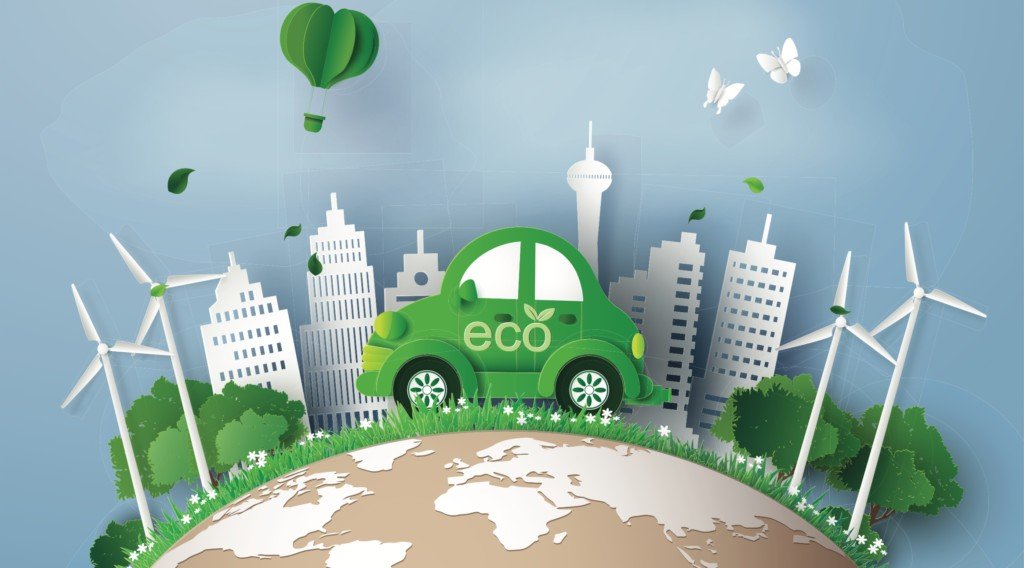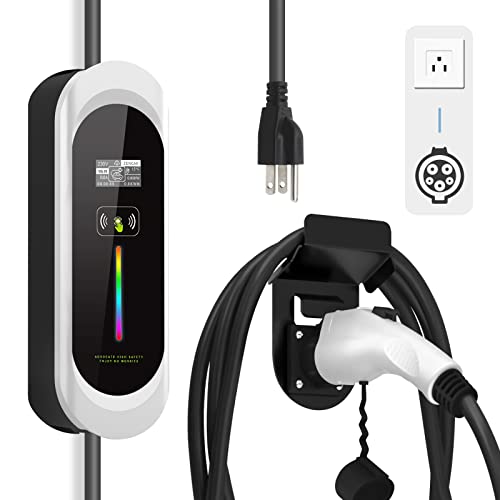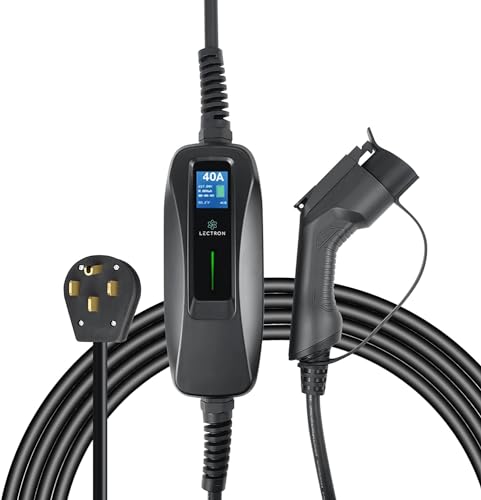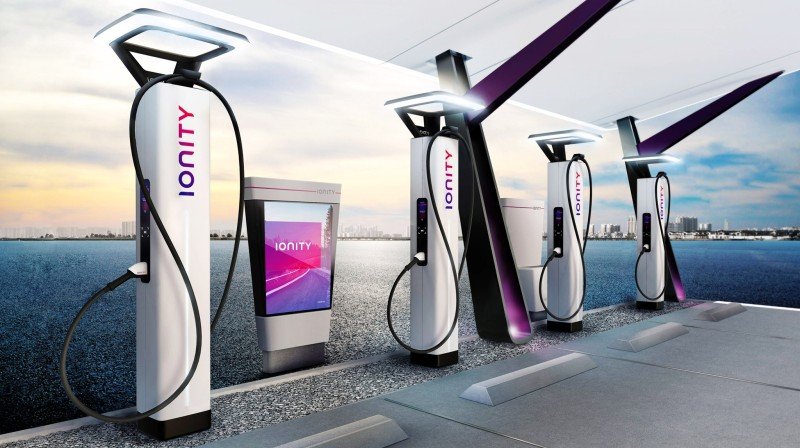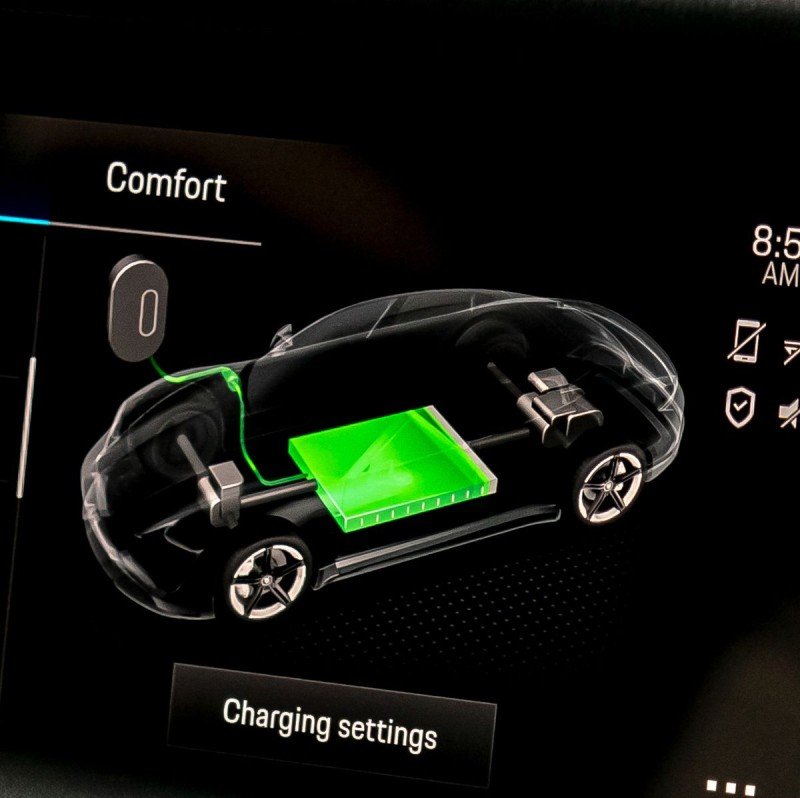Keruida Portable Level 1 EV Charger
Charge Your Electric Vehicle Anywhere with Keruida's Portable Level 1 EV Charger
Product information
Product Review Score
4.43 out of 5 stars
178 reviewsProduct links
Electric vehicles, or EVs, are a type of vehicle that is powered by electricity instead of gasoline or diesel. Unlike hybrid vehicles , EVs run purely on electricity and use batteries to store energy.
These electric vehicles are becoming very popular in the last few years due to their potential to reduce our dependence on fossil fuels. Electric vehicles have a number of advantages including lower ownership costs, fewer emissions, and more efficient performance than gasoline vehicles.
Unlike gasoline cars, electric cars have fewer moving parts and are easier to maintain. EVs also generate no tailpipe emissions, meaning they produce no greenhouse gases and thus make a great contribution to air quality. Additionally, they are generally more efficient in terms of energy consumption, meaning that you can save money on gasoline and make fewer trips to the gas station.
The main drawback of electric vehicles is their range. Though some models of EV can travel up to 300 miles on a single charge, most models only last about 100 miles before needing to be recharged.
Although electric vehicles are becoming more popular, there are still many barriers to their adoption, primarily due to the fact that there is limited access to charging infrastructure. Additionally, EVs are still more expensive than fuel-powered cars, although their prices are coming down as more models become available.
In conclusion, electric vehicles are a great way to reduce our dependence on fossil fuels and help to improve air quality. These vehicles offer lower ownership costs, fewer emissions, and more efficient performance than gasoline vehicles. However, they have the drawback of limited range and lack of access to charging infrastructure.
Cost Advantages of Electric Vehicles
One of the primary advantages of electric vehicles (EVs) over traditional gasoline-powered vehicles is their reduced cost of ownership. Not only are the initial purchase prices of EVs significantly lower than those of their gasoline counterparts, but they also require much less in the way of maintenance costs. EVs come with fewer moving parts, meaning that the cost of parts and labor to repair EVs can be significantly lower.
Electricity is also much cheaper than gasoline, so running an EV is often cheaper than running a gas-powered car. According to the U.S. Department of Energy, electric vehicles cost less than three cents per mile to operate, while gasoline-powered cars cost around ten cents per mile. There are also government incentives available for buying electric vehicles in some countries, making EV ownership even more affordable.
The overall cost savings that comes with an electric vehicle can add up over the course of its lifetime. When factoring in the lower maintenance, electricity consumption costs and possible government incentives, an EV is often a better overall financial decision than a gasoline-powered vehicle.
Environmental Benefits of Electric Vehicles
Electric vehicles are an efficient and environmentally friendly alternative to traditional gas-powered vehicles. Driving an electric vehicle can have a positive impact on the environment, both in terms of air pollution and climate change. Here are just a few of the environmental benefits of electric vehicles.
Reduced Air Pollution
Electric vehicles produce no tailpipe emissions, unlike traditional gasoline-powered vehicles that produce carbon dioxide and other harmful pollutants. This means that electric vehicles help to reduce the amount of air pollution in our cities and towns, which can lead to improved public health and well-being.
Reduced Climate Effecs
Electric vehicles produce no carbon dioxide or other greenhouse gases, so they do not contribute directly to climate change. Furthermore, since the electricity used to power electric vehicles is often produced from renewable sources, such as wind and solar, electric vehicles can help to reduce our reliance on fossil fuels and decrease our overall greenhouse gas emissions.
Lower Fuel Costs
Finally, electric vehicles are often cheaper to operate than comparable traditional gas-powered vehicles. The cost of electricity is often much lower than the cost of gasoline, so electric vehicles can help you save money on fuel expenses over time.
These are just a few of the environmental benefits of electric vehicles. By making the switch to electric vehicles, you can help reduce air pollution, contribute to the fight against climate change, and save money on fuel costs. Electric vehicles are a smart choice for both the environment and your wallet.
PION POWER Flex-AC - Smart EV Charger
Charge Your Electric Vehicle Smarter with PION POWER Flex-AC EV Charger
Product information
Product Review Score
4.74 out of 5 stars
232 reviewsProduct links
Performance and Reliability of Electric Vehicles
An electric vehicle is a type of motor vehicle with low or no emissions. As electric cars become increasingly popular, performance and reliability of electric vehicles have been studied and discussed.
Electric vehicles typically have four to six times higher overall efficiency rates than traditional gasoline-powered vehicles. This means that electric cars are capable of going farther on a single electric charge, thus reducing or eliminating the need for frequent refueling. In addition, electric cars often have much faster acceleration and can reach higher top speeds.
Electric vehicles also tend to require less maintenance than gasoline-powered cars. Without pumps, spark plugs, spark plug wires, or other typical gasoline engine components, electric vehicles are much easier to maintain. Additionally, electric vehicles are designed to maximize the energy stored in their electric batteries and motors, thereby further reducing required maintenance.
Overall, electric vehicles offer improved performance and reliability over traditional gasoline-powered vehicles. This makes electric cars an increasingly popular choice amongst consumers.
Tax Incentives for Purchasing Electric Vehicles
Electric vehicles have become increasingly popular due to their environmental benefits, but purchasing one can be expensive. Fortunately, there are a variety of federal, state and local government tax incentives available that can help offset the costs of buying and owning an electric car.
At a federal level, the Plug-in Electric Drive Motor Vehicle Credit offers up to $7,500 tax credits to those who purchase an eligible electric vehicle. This credit starts to phase out after 200,000 eligible vehicles are sold by the manufacturer and can be taken up to the full amount by the manufacturer until that limit is reached.
At a state and local level, there are a variety of incentives available. Many states allow the purchase of electric vehicles to be exempt from the state sales tax, some offer income tax credits and refunds, and many have special incentives for electric vehicle charging station installation. Additionally, some states offer vouchers or other incentives for the purchase of electric vehicles. These programs vary greatly between states so it is important to check with your local government to find out what incentives are available.
Tax incentives can make a big difference when considering the purchase or lease of an electric vehicle. Doing research and understanding what incentives are available can help you to make an informed decision and save money in the long run.
The Future of Electric Vehicles
Electric vehicles have the potential to revolutionize the way we get around. As global leaders strive to reduce their collective carbon footprint, the future of electric vehicles looks promising. Advancements in technology have brought the cost of electric vehicles down, as well as increasing their range, bringing them increasingly more into the mainstream.
Society has already seen the convenience of electric vehicles, with the introduction of global sharing services such as Uber and Lyft. These services rely heavily on electric vehicles to reduce the cost of transportation for the consumer, making them the perfect platform to introduce more consumers to the concept of electric vehicles.
The shift to electric vehicles will also bring with it many more benefits for the consumer, such as a dramatic reduction in maintenance and running costs. Whereas a petrol vehicle may incur high maintenance costs due to the frequent need to service the engine and other highly mechanical systems, electric vehicles are predominantly made up of electronic parts and thus require far less maintenance. This makes them a much more attractive option for everyday use.
In the future, electric vehicle technology is likely to be incorporated into almost all areas of transportation. From buses, airplanes and even boats, electric vehicles are likely to play a larger role in the future of transportation. This will bring even more cost savings to the consumer, as well as almost eliminating the need for fossil fuels in the transportation sector.
Electric vehicles have huge potential to revolutionize the way we get around. As technology continues to improve and battery costs continue to decrease, it is very possible that the future of transportation will be electric.
Conclusion
Electric vehicles are a great alternative to petrol and diesel-fueled vehicles for a number of reasons. They have lower maintenance costs, less harmful emissions, and are more efficient than their petrol or diesel-fueled counterparts. Additionally, by using electric vehicles, consumers can benefit from higher performance, easier parking and charging, and a long-term savings plan. The increasing availability of electric vehicles and government incentives further encourage the uptake of electric vehicles. Therefore, it is clear that electric vehicles offer a great solution to an increasingly planet-conscious public.
Wall-Mount EV Charger Dock with Holster
Efficient and Convenient EV Charging Station for Home or Office Use
Product information
$24.98 $18.55
Product Review Score
4.28 out of 5 stars
143 reviews